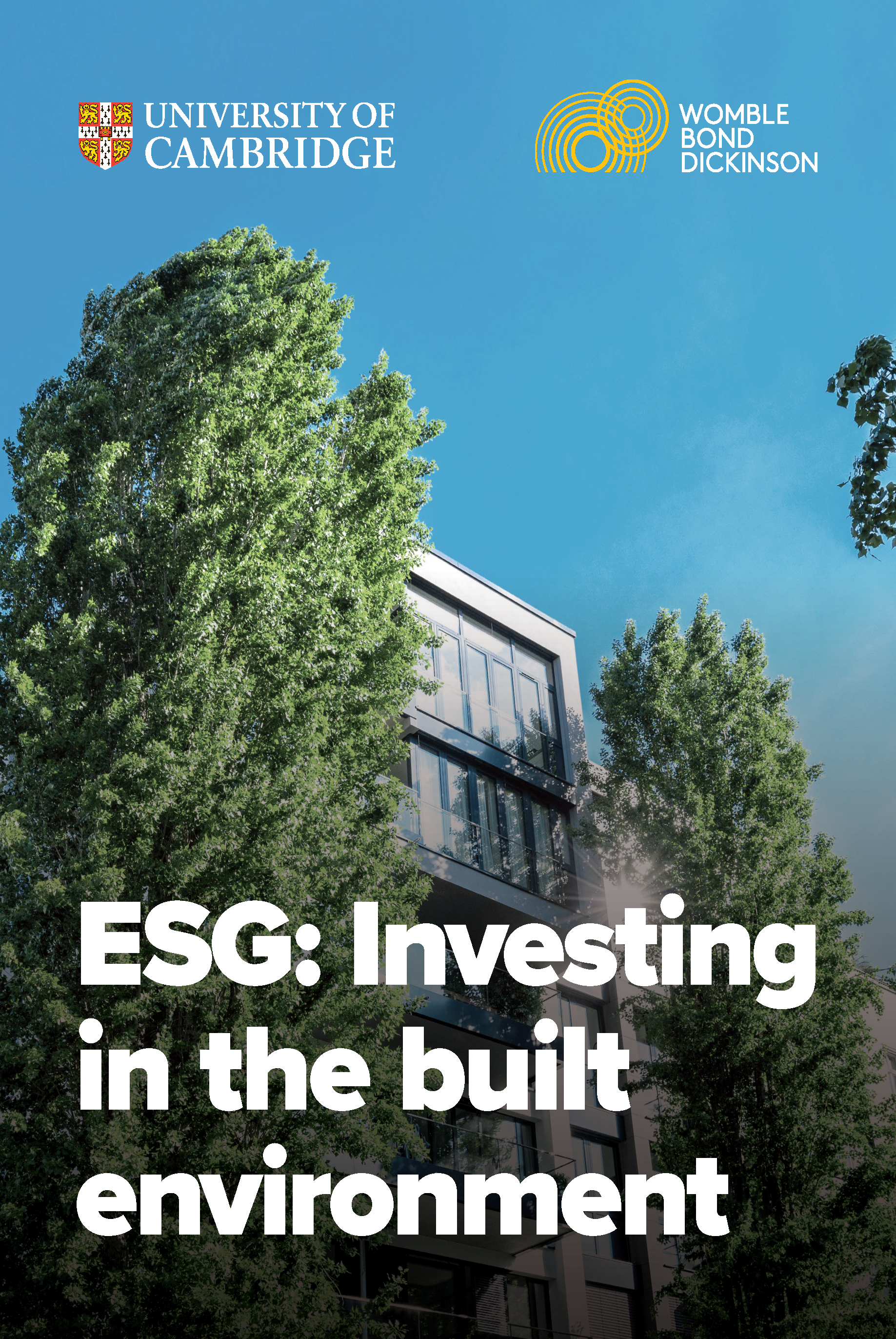
Environmental, Social and Governance (ESG) has become a higher priority for businesses across all sectors, including real estate and built environment, where both an increased focus on the environment and a rise in popularity for ethical or green investment are informing developments in housebuilding.
As a result, ESG principles and decision making are impacting many key business operations - from skills to investment. However, delivering on ESG promises is not always an easy task.
ESG brings together three main factors – environmental, social and governance - each of which has different sub-categories and measuring indicators that are not universally agreed upon.
International law firm Womble Bond Dickinson commissioned Cambridge Centre for Housing and Planning Research (CCHPR) to conduct a desk-based, evidence-rich review on the impact of ESG principles on the operations of companies within the UK built environment sector.
The report explores insights from companies across the UK, focusing on two sectors: where housebuilding forms a key part of the business operations, and companies that operate within the banking and investment sectors.
Drawing on academic and market literature, this study deepens the understanding of ESG principles and how these are changing investor priorities and decisions that are critical to business operations.

"The report shows that whilst the environmental aspect of ESG has been established, further work needs to be done to make the social and governance elements clearer to support more cohesive outcomes".
A recent survey of 1,000 sustainability investment managers across Europe revealed that investors prioritise the environmental dimension of 'ESG'.
Whilst there is less consensus around the scope of social issues and guidance for community engagement, many housebuilders are taking their own initiative in designing projects that fall within the social pillar.
It is mostly not clear where ESG governance sits within companies’ overall governance frameworks, and whether there is a dedicated in-house ESG team adequately resourced to focus on ESG issues exclusively.
"72% of UHNW investors say that they include ESG factors in their investment decisions".
"The endemic nature of some social problems, such as poverty and deprivation, make it difficult to judge whether interventions by housebuilders in the name of ESG are tokenistic or make material changes in the lives of people and communities".
"Almost all housebuilders emphasised the importance of ensuring that ESG principles and regulatory compliances are adhered to within their supply chains".
"Whilst there aren’t specific mandates or guidance relating to ESG, housebuilders are forging their own methods as a group".





